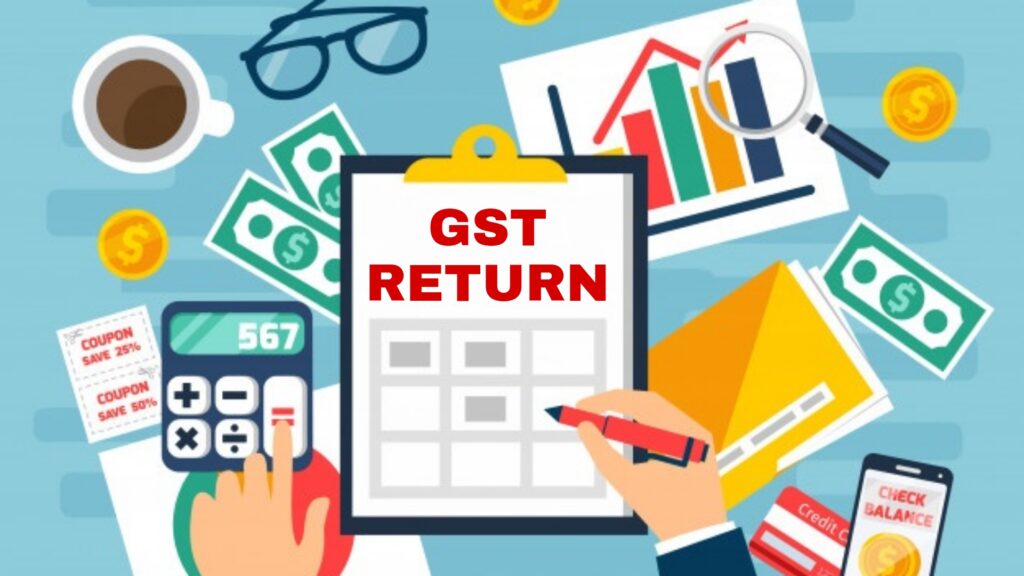The Goods and Services Tax (GST) system is a vital aspect of financial management for businesses across New Zealand. If you are a business owner, or aspiring to become one, this article could be beneficial for you, as we delve into the intricate details of GST compliance in NZ that you should be acquainted with.
This extensive guide discusses the nuanced aspects of GST returns for New Zealand businesses. From the filing process to common challenges, this guide will explore essential components while highlighting why you, as a business, should register for GST and the critical role of a professional accountant in ensuring seamless GST return processes. Let’s get in:
Page Contents
What is GST Return Filing?
GST is a comprehensive indirect tax applied to the supply of goods and services. At its core, GST return filing is the meticulous process by which businesses registered for GST in New Zealand report their financial transactions.
This includes an exhaustive account of sales, purchases, and the amount of GST collected and paid during specific periods, usually every two months. This critical process not only ensures compliance with tax regulations but also provides tax authorities with precise insights into a business’s financial health, facilitating effective governance.
Who Should Register for GST?

Businesses in New Zealand that sell goods and services and anticipate an annual turnover of $60,000 or more in a 12-month period are obligated to register for GST. However, if your annual turnover is below $60,000, you have the option to voluntarily register for GST. This choice can be advantageous, especially if you deal with larger businesses that are also GST registered, as they can claim back the GST you charge them.
Once registered for GST, it’s crucial to file GST returns and remit the collected GST to the Inland Revenue. If your annual turnover drops below $60,000, you have the option to cancel your GST registration.
Why Should a Business Register for GST?
Registering for GST in New Zealand is not just a legal obligation but a strategic move with numerous advantages. If your business exceeds the $60,000 threshold in annual turnover, you can claim back the GST you’ve paid on expenses, significantly improving cash flow.
Furthermore, GST registration enhances the credibility of the business, often seen as a mark of professionalism and legitimacy in the business community. It positions your business as a trustworthy entity, potentially opening doors to partnerships and collaborations.
What are GST Returns?

GST returns are reports that GST-registered businesses need to submit to Inland Revenue, detailing the amount of GST they have charged and paid during a specific GST period. For sole traders or small businesses, the typical filing frequency is every two months, as per the IRD default.
However, if your annual business sales are $500,000 or less, you have the option to file every six months. The choice between two or six-monthly filing is made during registration or by applying at a later date. Monthly filing is also an option, but it may increase administrative workload and is generally beneficial only if you regularly claim refunds and have tight cash flow.
Your GST return must encompass the total sales amount (including GST), the GST charged on those sales, the overall expenses amount (including GST), and the GST claimed back on those purchases. Special rules apply for goods and services if you’re involved in exporting or importing.
If the GST charged exceeds the GST claimed, you pay the difference to Inland Revenue. Conversely, if the GST claimed is higher than the GST charged, you’ll receive a refund.
GST Return Formats:
Navigating the labyrinth of GST return formats is essential for businesses with varying turnovers and registration statuses. While the standard GST101 form is prevalent, businesses with a turnover of less than $500,000 have the option to use the simpler GST103 form.
Selecting the appropriate format is a pivotal decision in the pursuit of efficient and accurate GST return filing. Regular evaluations of business turnover and swift adjustments to filing formats ensure continued compliance.
What is the Penalty for Late Filing or Non-filing of GST Returns?

Timely GST return filing is not merely a suggestion but a mandate to avoid penalties. The Inland Revenue Department (IRD) imposes penalties for late filing or non-filing, with the severity escalating based on the number of days the return is overdue.
This dynamic penalty structure underscores the importance of meeting filing deadlines. Staying abreast of these penalties is vital, providing businesses with a clear understanding of the consequences of non-compliance.
What Common Errors Might Occur When Filing a GST Return?
Despite businesses’ best efforts, challenges in GST return filing are prevalent. Inaccuracies in reporting, failure to account for exempt supplies, and miscalculations are common pitfalls. Addressing these challenges proactively enhances the accuracy and efficiency of GST return filing processes.
Businesses can implement regular training programs for accounting staff, fostering a culture of vigilance and ensuring that internal checks become a robust mechanism for error prevention.
Why Do You Need a Professional Accountant for GST Returns?

Getting through the complexities of GST return filing requires a level of expertise that professional accountants bring to the table. These financial experts not only ensure accurate and timely filing but also provide strategic financial insights.
They are aware of ever-evolving tax regulations, minimising the risk of errors and penalties. Engaging a professional accountant for GST returns provides businesses with peace of mind, allowing them to focus on their core operations while ensuring compliance with tax obligations.
Conclusion
In conclusion, mastering GST returns is an indispensable aspect of financial management for NZ businesses. From understanding the filing process to navigating different GST return formats and addressing common challenges, businesses must stay informed to ensure compliance and avoid penalties. Registering for GST is not just a legal obligation; it offers tangible benefits that can significantly impact a business’s financial health.
Additionally, the expertise of a professional accountant is crucial for efficient GST return filing, providing businesses with the confidence that their financial affairs are in capable hands. By embracing these principles, businesses can contribute to a robust financial framework, ensuring long-term success and compliance in the New Zealand business landscape.






